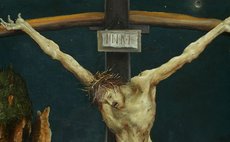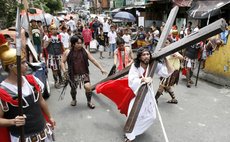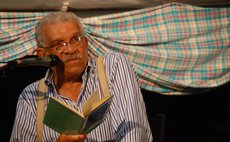1979-Watershed Year
The year 1979 was one of the most eventful years in modern history. In any discussion of Bloody Tuesday, May 29, 1979, we need to envisage that incident not in isolation but as part of a world-wide experience. This is the only way in which we can grasp the real significance of that momentous occurrence in our history.
There are certain periods in history when nations just sprung into life. There are times when people who seemed inert suddenly found new energy and were galvanized into action. Several times in history, revolutions have been undertaken to reform society. The apparently strange truth is that those endeavours to transform society often did not take place when conditions were at their worst. It is as if some power beyond nature got hold of men and women, determined to lead them into paths unknown.
A few world events might enlighten us in this regard. In 1979, Governments in Uganda, Iran, Ghana, Nicaragua, Cambodia, New Guinea, were overthrown. In Uganda, Idi Amin, known as the "Black Stalin" because of his brutality, was driven out. In India, the Prime Minister, Moragi Desai was forced to relinquish power. In 1979, after decades of fighting against the racist regime of Ian Smith in Rhodesia, Robert Mugabe and Joshua Nkomo met with Lord Carrington in Britain to prepare for independence. In 1979, there was the Iranian revolution.
In the Caribbean, in 1979, Sir Arthur Lewis of St. Lucia, along with Theodore W. Schultz, received the Nobel Prize in Economics. It was the first time a Black man had been awarded a Nobel Prize other than the Peace Prize. In Antigua, St. Kitts, St. Vincent and the Grenadines, Guyana, Trinidad and Tobago, there was much unrest. On March 13, 1979, the New Jewel Movement under Maurice Bishop staged the first coup d'état in the Caribbean. In Jamaica, under Prime Minister Michael Manley, there was rampant violence, which neither he nor opposition leader, Edward Seaga could control.
The Trinidadian author, V.S. Naipaul, had written that the West Indies were the Third World's third world, incapable of initiating anything—not even a revolution. Grenada and Dominica changed the picture.
May 29, 1979, was undoubtedly an historic moment in the Commonwealth of Dominica. The confrontation between Government and various sections of the community, including the Trade Unions, the Press and the Freedom Party, reached a climax. Never had there been so much violence in the Land of the Lord. This led to the downfall of the Government of the Dominica Labour Party under Prime Minister Patrick John.
As if that were not enough for a poor, beleaguered country, three months later there was the utter devastation of the country caused by Hurricane David. August 29, 1979 marked a disastrous moment in Caribbean history. Dominica was brought to her knees.
So what we have here is the vision of a world in transition. It was a restless world seeking a way out of confusion, injustices and inequalities, a lack of serious direction in which it was immersed. People were rightly dissatisfied and they were convinced that there must be a way out and that they had the power to change things.
Many saw those incidents as a providential call to the nation to mend its ways and steer away from the spirit of confrontation that had marked the political journey. A Committee for National Salvation, formed after Bloody Tuesday when the country was in utter disarray, seemed to provide some reason to hope. But, alas, beyond paving the way for a return to democratic rule according to the Constitution, the Committee proved helpless.
What was needed was a new beginning. There was need for a politics of participation rather than confrontation. Power struggle could only retard progress. A new political culture was needed. A radical transformation was called for. But this was far to seek.
In 1979, Dominica was unable to produce a single statesman who could lead the nation to embark upon a new beginning. There was an utter lack of inspiring leadership. There was no one who seemed able to rise above the current of political squabble and political ambition.
In the 18th century, William Pitt the Elder, exclaimed in the House of Commons, "I can save this country and no one else can." History records that "England was in labour until she brought forth a man." That man, on taking on the reins of government, completely changed the fortunes of the country. Dominica was in labour. But instead of bringing forth a man she brought forth mere wind.
At certain times in history, golden opportunities for renewal have been presented. But these have been botched and thwarted by the vain ambitions of men and women who have approached the issue of governance with selfish minds and selfish hearts.
This, in my opinion, is the important lesson of the Year 1979. We must not be afraid of history. As one wise man has put it, "Those who do not learn from the mistakes of the past are condemned to repeat them."




